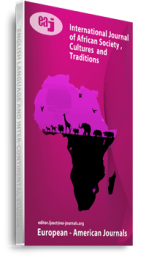Like all other constituent elements of language study, lexical items are perfunctorily organized and deployed by writers and speakers for meaning delivery and stylo-rhetorical effects, as words capture or reflect every facet of life, including objects, phenomena and concepts and, thus, form a veritable part of the communication process. This study, therefore, examines how lexical sets, which exude same or related semantic property or subject matter, have aided Gabriel Okara to transmit his social vision and achieve aesthetic purposes in The Voice. With M.A.K. Halliday’s systemic functional grammar, as the analytical template, the study shows that, in relation to definite pragmatic or sociological contexts, lexical sets play a dominant role in foregrounding the themes of light and darkness, corruption and moral decadence, hypocrisy, materialism, truth and integrity, etc, which constitute the pivot around which meaning revolves in the text. The study demonstrates the fact that the treasures or potentials of lexical items are inherently inexhaustible as they can be combined, manipulated or deployed in various ways for linguistic expression and human communication to be realized.
Keywords: Gabriel Okara, Lexical Set, Systemic Grammar., Thematization, the Voice

